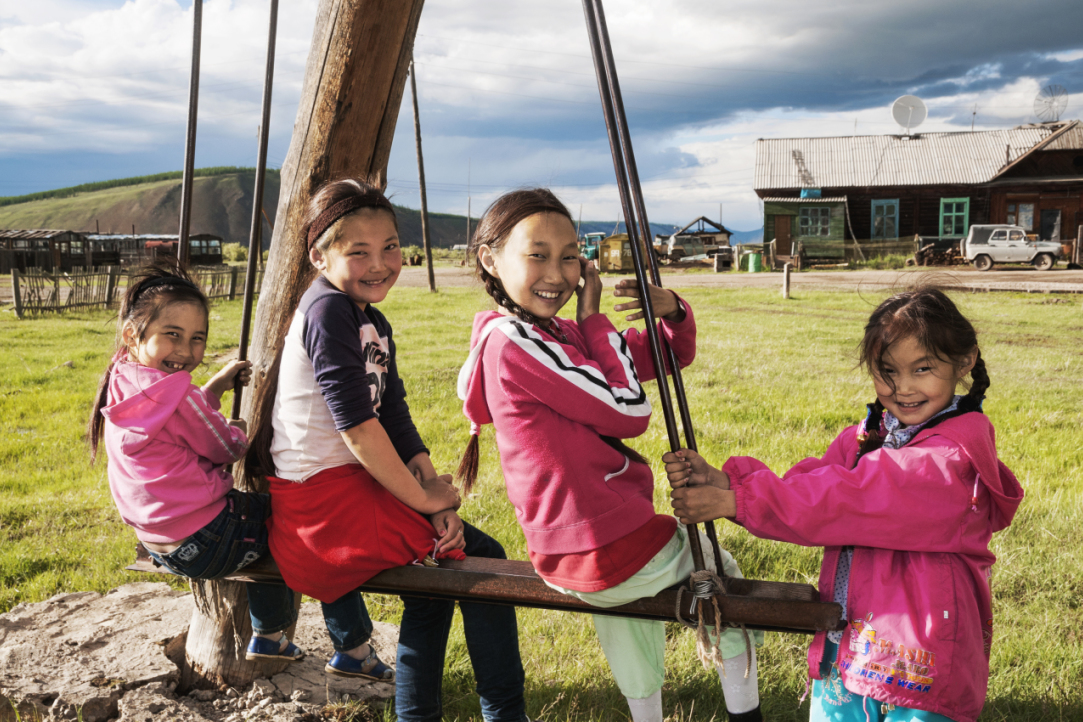First Social Impact Project in Yakutia Goes Online

Schoolchildren in many countries, including Russia, are now studying remotely. Russia’s first social impact project in education, in which over 5,000 students and 700 teachers from 27 schools of the Khangalassky District of the Republic of Sakha (Yakutia) are participating, is also transitioning to an online format. The transition will be overseen by the project creators—Project Office staff members of HSE’s Institute of Education.
Even during preparations for the programme launch, special emphasis was placed on distance learning, which today allows access to quality education from anywhere in the world, notes Sergey Kosaretsky, Director of the Centre for Social and Economic Development of the HSE Institute of Education and Head of the Project Office. Distance learning is especially relevant for Yakutia: there are many hard-to-reach, sparsely populated settlements with only small schools.
Sergey Kosaretsky, Director, Centre for Social and Economic Development, Institute of Education; Head of the Project Office, HSE

Our project puts special emphasis on using pedagogical technology that allows for the efficient use of digital tools. Groups of students and teachers have been formed who will conduct their studies on platforms that have been selected by experts and provide adaptive learning opportunities that will not supplement but rather take the place of in-person lessons. Now we are preparing a separate online learning action plan that takes the current situation into account. We are integrating our support measures and new tools into the current plans of the Republic, the municipal education administration, and the schools. It will include measures to support children, teachers, and families. Next week we plan to agree on this plan and move on to its implementation.
In 2019, the State Development Corporation VEB.RF became one of HSE’s partners in this project. According to Mikhail Alashkevich, Senior Vice President of the company, today the entire pedagogical community has to make every effort to ensure that the transition to online education is successful. ‘Despite the restrictions caused by the spread of coronavirus, we are confident that the Project Office of the HSE Institute of Education will be able to implement all the steps planned for this academic year to create a new, innovative online learning and exchange system for teachers and schools in the Khangalassky District, which will allow us to significantly improve the quality of education of the graduates,’ says Mikhail Alashkevich. ‘Upon completion of the social impact project in 2022, all the best practices and methods will remain in Yakutia, and a target model of effective and high-quality school education will be created and tested in practice, which can then be replicated in all other municipalities.’
An agreement to launch the project was signed between VEB.RF, the Far East and Arctic Development Fund, HSE University, and the Government of Yakutia at the St. Petersburg International Economic Forum last year. The goal of the project is to increase student learning outcomes by 10%.
The social impact project in the Khangalassky District was launched 10 months ago. The experience gained during this time has now allowed local schools to be among the first of Yakutia schools to smoothly transition to distance learning. ‘Continuing education courses for teachers were initially conducted both onsite and remotely. Teachers have significantly expanded their pedagogical tools and gained valuable practical skills in working with digital educational resources,’ says Vladimir Yegorov, Minister of Education and Science of Yakutia. ‘All this gives confidence in the successful implementation of the project and its further expansion throughout the Republic.’

